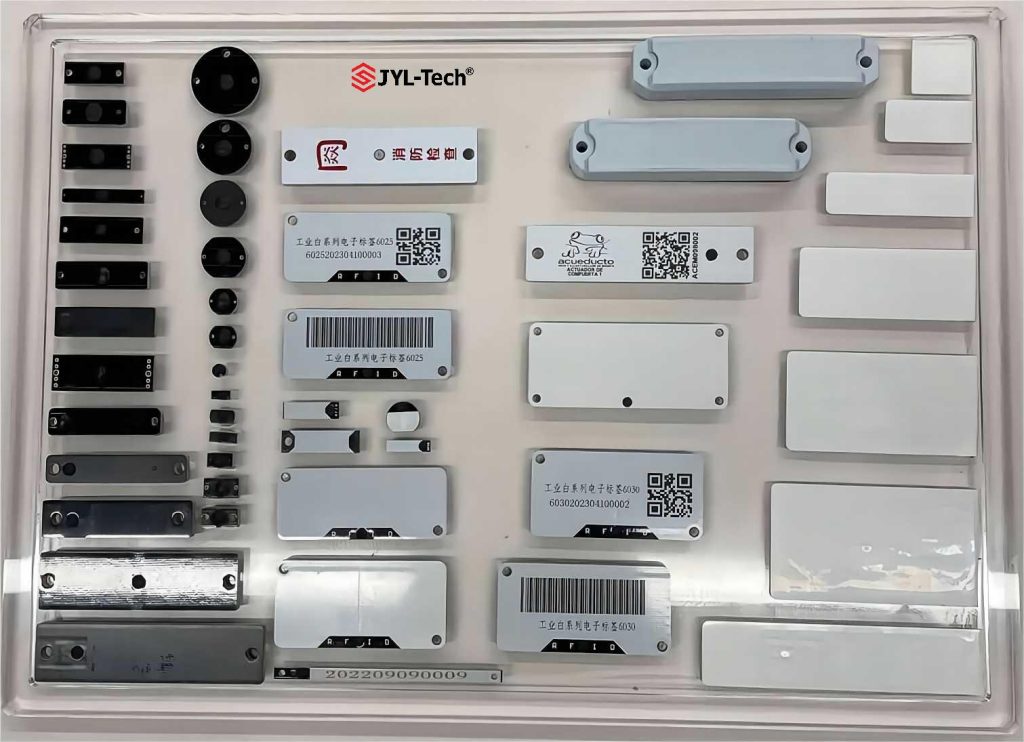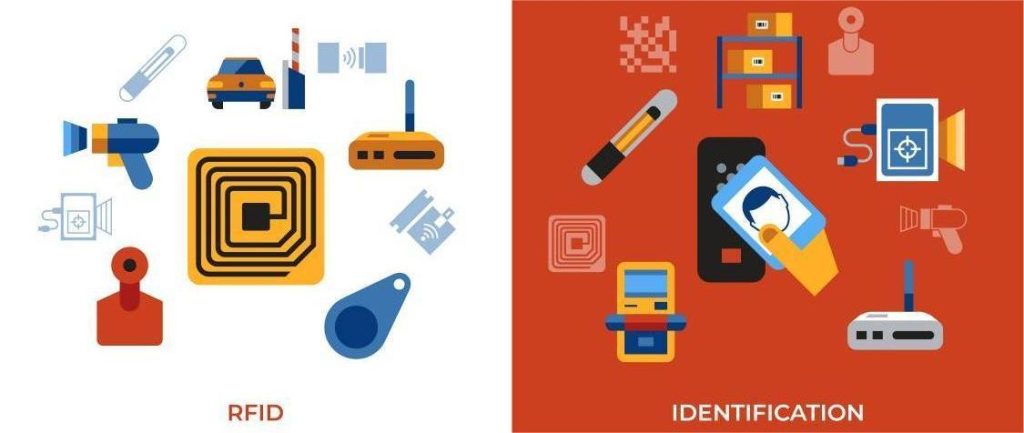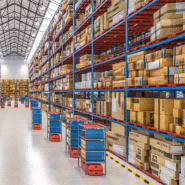RFID industrial tags consist of an integrated circuit (IC) and an antenna, which work together to communicate with RFID readers. RFID technology is widely used across various industries for tracking, identifying, and managing assets, products, and even people.
RFID technology plays a fundamental role in the development of the Internet of Things (IoT). By attaching RFID tags to everyday objects and products, these items can become part of the larger network of interconnected devices in the IoT. Each RFID tag serves as a unique identifier for the associated item, allowing it to be tracked, monitored, and interacted with in the digital realm.

Here’s how RFID industrial tags are used across different applications to meet specific purposes:
Supply Chain Management:
RFID tags can be attached to products and packaging to track their movement throughout the supply chain. This helps streamline inventory management, reduce errors in shipping and receiving, and improve overall visibility into the supply chain process.
Inventory Management:
RFID tags can replace traditional barcode systems, allowing for quicker and more accurate inventory tracking. The tags can be read from a distance without requiring a direct line of sight, making it possible to track multiple items simultaneously.
Asset Tracking:
Industries such as manufacturing, healthcare, and logistics use RFID tags to monitor and locate valuable assets like machinery, equipment, and tools. This helps prevent loss, theft, and aids in maintenance scheduling.
Retail:
RFID tags on clothing and merchandise help retailers manage inventory levels, prevent shoplifting, and enhance the shopping experience. Customers can easily find items they’re looking for using RFID-based interactive displays.
Automotive Industry:
RFID tags can be used in the automotive sector for tracking parts throughout the manufacturing process and ensuring that the right parts are used in the right vehicles. They can also facilitate vehicle identification and registration.
Livestock Management:
RFID tags are employed in livestock management to track and monitor animals’ health, movement, and breeding cycles. This aids in disease prevention, efficient breeding practices, and ensuring food safety.
Access Control and Security:
RFID tags are used for access control in secure areas. Employees can use RFID-enabled badges to gain entry to restricted areas, enhancing security and tracking entry/exit times.
Waste Management:
RFID tags can be attached to waste containers for efficient collection and disposal. This helps optimize waste pickup routes and frequency, leading to cost savings and reduced environmental impact.
Pharmaceuticals and Healthcare:
RFID tags are used to track pharmaceutical products from production to distribution, ensuring authenticity and preventing counterfeiting. In healthcare, they aid in patient identification and tracking medical equipment and supplies.
Library Management:
Libraries use RFID tags to automate the borrowing and returning of books, reducing manual work and improving accuracy.
Agriculture:
RFID tags in agriculture can be attached to plants, trees, or equipment to monitor growth, track environmental conditions, and manage irrigation and pest control.
Mining and Construction:
RFID tags are used to track equipment, tools, and materials on construction and mining sites, improving efficiency, reducing theft, and enhancing safety.
RFID industrial tags offer a versatile and efficient way to track and manage assets, products, and processes across various industries, improving operational efficiency, accuracy, and security. The specific tag type, frequency, and features chosen depend on the unique requirements of each application.
Contact our Sales team for more details : Info@jyl-world.com
Related Products
Contact Form
We can help you?
Find the RFID product or solution that meets your business needs. Ask us to help you find the right decision.
Share this page


